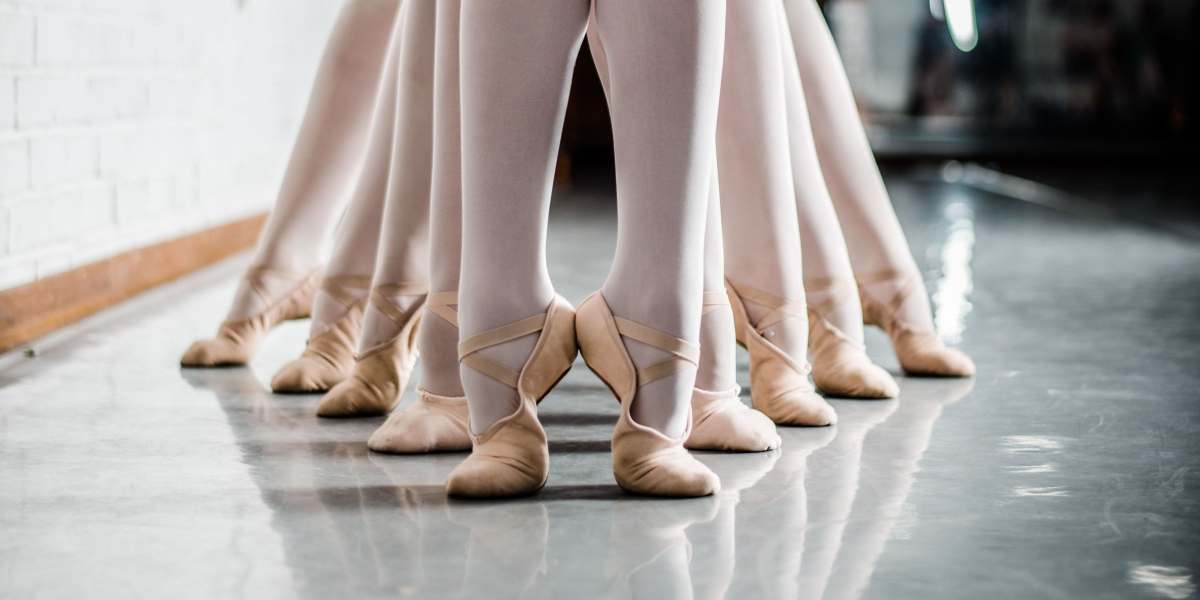Why Is Ballet the Foundation of Dance Disciplines?

Take a peek at any dance studio’s class lineup and you’ll see a lot of variation. Some studios offer combination classes, while others separate out disciplines into individual sessions. You may find lyrical, hip hop, and even Irish dancing at one studio, while another focuses on the “basics” and offer a limited menu.
But one thing you’ll find on every dance studio’s roster, from tiny dancers all the way up to pros, is a focus on ballet as the main dancing discipline.
Why is ballet considered the foundation of a dancer’s career, even if that dancer never performs in pointe shoes?
There are a variety of reasons that ballet forms the base of all dancers’ technique:
Teaches Proper Technique & Terminology
Sure, some of the other disciplines have their own vocabulary, such as Time Steps in tap and Popping or Locking in hip hop. But to be able to be effective in any other discipline, you need to know the foundational moves and terms, which come from ballet.
For example, if you’re taking a jazz or lyrical class, you’re bound to run into a posse or a pique turn. You can learn these moves in your jazz or lyrical class, but it’s much easier and makes for a faster-moving class if you already know them before you set foot in the studio.
And just as you learn the terms themselves in ballet, you learn the actual moves and how to correctly execute them in ballet class. This time to learn proper technique is why many ballet classes are longer than other single-discipline classes; you begin with barre work, then move into center or floor work, and you may learn a short combination.
The longer, partitioned class allows all students to better learn each individual movement and how to execute it properly to preserve proper technique.
Builds Strength & Endurance
Dance, no matter the discipline, is hard work. But nothing prepares you better for a routine full of jumping and spinning like a long barre session holding the same position for minutes on end.
In ballet, the focus is on slow, flowing, controlled movements, which helps dancers develop strong muscles. These muscles are necessary for the beautiful performances you see on stage during your favorite ballet, but they’re also very useful for explosive hip hop routines, fast tap pieces, and fun musical theater numbers.
All the practice of individual skills, over and over, helps dancers become stronger, more flexible, and better able to endure exhausting routines.
Improves Poise & Posture
Dancers are nothing if not graceful, and that grace comes from years of building strong, lean muscles and improving core strength.
For dancers, every movement has to come from a centered position, and knowing exactly how any given movement is going to affect your center of gravity is key to staying balanced even during wild and fast movement shifts.
The time spent in ballet class finding your center and practicing holding it during turns, leaps, and all manner of movements translates easily to other disciplines, as well as everyday life.
Familiarity with Timing & Rhythm
In dance, everything is about maintaining the correct beat for the music and executing individual moves at the right time.
While the songs used for many other dance disciplines have heavy beats that are easier to track, the classical music used in many ballet performances is more complex. This makes it difficult to find the underlying beat and requires much more thinking on the dancer’s part.
If you can master a ballet routine to a complicated piece of classical music, then you can master any dance to any piece of music!
Ballet Classes for All Ages in Frederick, MD
For more than 30 years, Dance Unlimited has provided exceptional dance training to dancers of all ages and skill levels. Regular-season dance classes include ballet, tap, jazz, lyrical, hip hop, acro dance, and more! Summer intensive classes and camps keep skill levels high and learning consistent all year long. Sign up today!
